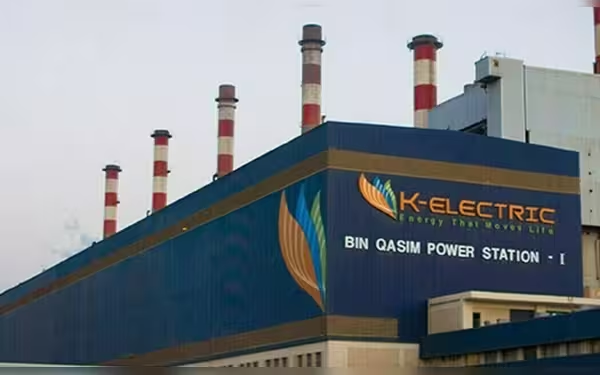Saturday, November 16, 2024 07:41 PM
KE Secures Lowest Bid for 220MW Hybrid Energy Project
- JCM Power offers Rs8.9189 per unit tariff.
- Seven bids received for Dhabeji hybrid project.
- Project aims to diversify Pakistan's energy mix.
 Image Credits: dawn.com
Image Credits: dawn.comK-Electric announces JCM Power's lowest bid for the 220MW hybrid project, marking a significant step in Pakistan's renewable energy sector.
The renewable energy sector in Pakistan is witnessing a significant transformation, particularly with the recent developments surrounding the 220MW hybrid project in Dhabeji. This project, which combines both wind and solar energy, marks a pivotal step towards a more sustainable energy future for the country. As the world increasingly shifts towards cleaner energy sources, Pakistan is making strides to harness its abundant natural resources.
In a recent announcement, K-Electric (KE) revealed that JCM Power has submitted the lowest bid for the project, proposing a tariff of “Rs8.9189 per unit.” This bid not only stands out as the most competitive but also sets a new benchmark in Pakistan’s renewable energy landscape. The significance of this development cannot be overstated, as it reflects a growing trend towards more affordable and accessible renewable energy solutions.
Earlier this month, KE disclosed that it had received a total of seven bids for this groundbreaking project. The competition among bidders highlights the increasing interest in renewable energy investments in Pakistan. With the government’s commitment to expanding the renewable energy sector, projects like the one in Dhabeji are crucial for meeting the country’s energy demands while also addressing environmental concerns.
The hybrid project is expected to play a vital role in diversifying Pakistan’s energy mix. By integrating both wind and solar power, the project aims to enhance energy reliability and reduce dependence on fossil fuels. This is particularly important for a country like Pakistan, which faces significant energy challenges, including frequent power shortages and rising electricity costs.
As the world grapples with climate change, initiatives like the Dhabeji project are essential for promoting sustainable development. The successful implementation of this hybrid project could serve as a model for future renewable energy projects across the nation. It is a clear indication that Pakistan is on the right path towards achieving its renewable energy targets.
The emergence of JCM Power as the lowest bidder for the 220MW hybrid project is a promising development for Pakistan’s renewable energy sector. It not only signifies a competitive market but also underscores the potential for innovation and growth in this field. As the country continues to explore and invest in renewable energy, it is imperative for stakeholders to collaborate and ensure that such projects are executed efficiently. The future of energy in Pakistan looks bright, and with continued efforts, the nation can pave the way for a cleaner, greener tomorrow.













